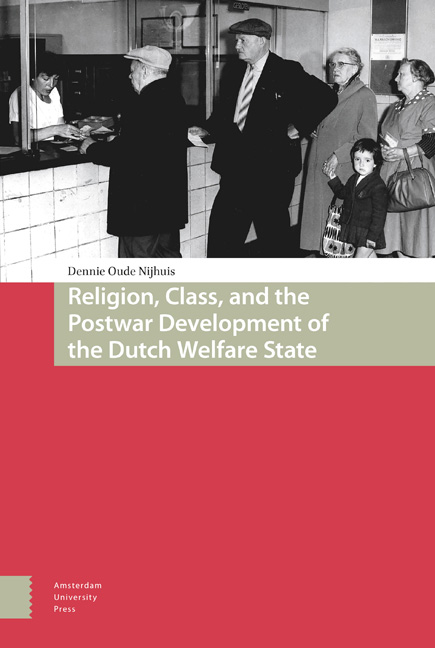4 - Welfare State Expansion and the Confessional Preoccupation with Personal Responsibility and Self-Help
Published online by Cambridge University Press: 11 December 2020
Summary
By the early 1950s, the necessity of postwar reconstruction no longer functioned as a major restraint on the social welfare ambitions of Dutch policymakers. Despite the extensive material damage inflicted on the country under German occupation, the postwar recovery of the Dutch economy was more or less completed by the beginning of the decade. By 1948, industrial production had already exceeded prewar levels, while by 1950, exports had increased by one fifth compared to their prewar rate. In subsequent years, the Dutch economy was to grow at a yearly average rate of almost five percent – far exceeding the European average – and it would continue to display impressive growth rates until the early 1970s. As a result – and despite an almost doubling of the labor force in this period – unemployment also remained quite low. With the exception of 1952, when events related to the Korean War created a mild recession in the Netherlands, the average yearly unemployment rate did not exceed three percent up to the mid-1970s.
In the long term, these economic conditions obviously facilitated the postwar expansion of the welfare state. Like in other European countries, greater prosperity not only permitted but also led to stronger pressure for increases in welfare generosity. However, during most of the 1950s, all major actors – including the labor union movement and most leftist parties – continued to formulate their welfare demands with great caution. One reason for this can be found in the remarkable longevity of the guided wage policy and the resulting preoccupation with wage and price restraint among policy-makers in this period. While this policy functioned in a somewhat less strict manner after 1953 (from then onwards, wage increases were no longer limited to compensation for loss of purchasing power, but rather were tied to productivity increases), there can be no doubt that it continued to limit the scope for increases in the generosity of welfare arrangements in the Netherlands. After all, as pointed out earlier, social costs constituted an integral part of total payroll costs, which meant that the need for austerity also extended to the area of welfare reform.
In addition to these material considerations, the expansion of the welfare state was also severely constrained by confessional notions of personal responsibility and self-reliance, as well as the resulting wariness of most confessional forces to state intervention.
- Type
- Chapter
- Information
- Publisher: Amsterdam University PressPrint publication year: 2018



